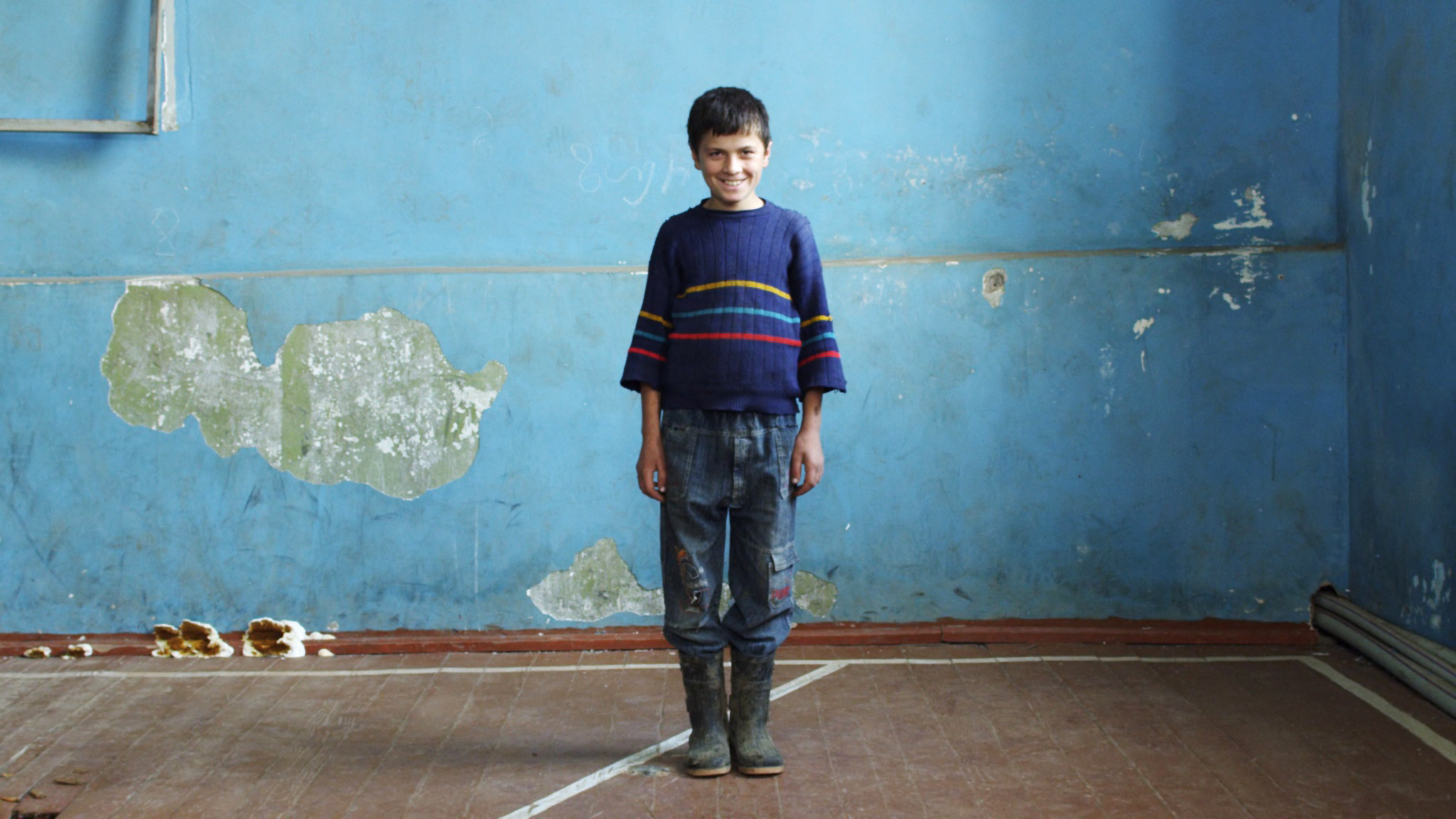The Machine Which Makes Everything Disappear
Runs Fri., Aug. 2–Thurs., Aug. 8 at Northwest Film Forum. Not rated. 101 minutes.
If minimalism was an economic necessity for filmmaker Tinatin Gurchiani—she had a few thousand dollars to spend on her first feature—it also fits her purpose. Her documentary is a narrow-gauge look at a sliver of real life in small-town Georgia in the former USSR. Gurchiani visits a rural community in the Caucasus and puts out a call to young people who might want to appear on camera. The very first fellow we see onscreen is much older than that demographic, an early indication that curiosity about being in a movie trumps all other considerations. He admits he has never done a film, but has always thought he might be good for, say, Jean-Claude Van Damme sorts of roles; he’s got some of those moves. Can he do the midair splits, asks the offscreen director? In the past, yes, answers our modest-looking villager, who looks more like a figure from a 19th-century lithograph than from a chopsocky action picture. He’d have to start practicing again.
The sneaking suspicion that “I would be good in movies” is voiced by more than one subject, overshadowing the ethnographic aspects of Gurchiani’s film. Having met some of these folks in interviews, we then see them in their lives, which vary from mundane workaday duties to a dramatic account of a young woman who finds the mother who abandoned her years earlier. The Machine doesn’t explain itself—was the young woman planning to seek out her mother before the movie crew came to town, or was this something proposed by the filmmaker? Is the incident playing out as it would have without cameras, or is the drama heightened for our view? Even without these questions, The Machine has conventional documentary strengths: It’s a precise if low-key look at a corner of the world where life goes on in timeworn ways despite the realities of digital cameras and Van Damme pictures.
By looking closely at these people (her fellow Georgian citizens), Gurchiani makes them movie actors. The camera reveals sincerity, guile, and anxiety just as it does with professionals, even if an accident of birth has relegated these folks to a farm community half the world away from Hollywood. The film’s simple method has shortened the presumed distance between the superstars and the rest of us—or it’s exposed how pervasive is the wish to be seen in a screen culture that touches every part of the world.
film@seattleweekly.com







